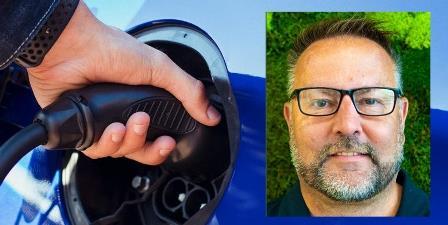
The haulage industry is under huge pressure from rising costs. Despite the Chancellor’s cut in fuel duty, many operators of lorry and van fleets are considering alternative technologies.
Electric vehicles not only deliver environmental benefits but present an opportunity for long-term savings. EVs have lower servicing and maintenance costs, and a zero rate of VED.
Traditionally, many business customers pay a flat rate for their electricity irrespective of the time of day or night that they use it. However, the energy industry is increasingly introducing tariffs to encourage customer behaviour towards consumption of electricity when demand is lower and ultimately cheaper, for example overnight or weekends when industrial and commercial demand is subdued.
One such tariff is SSE Green EV, which allows customers that have a smart or AMR meter to charge their EVs for less in off-peak hours. This could save fleet owners up to 10% on their energy bills.
The tariff is a natural fit for fleet owners, allowing them to charge their vehicles for less at times when they are not operating.
The other key consideration for EV charging is the origin of electricity. SSE’s Green EV tariff is 100% renewable electricity, generated from SSE’s own UK wind farms and hydro plants. With independent verification by EcoAct, an Atos company, fleet owners can easily report zero carbon emissions for electricity.
The latest report by the UN Intergovernmental Panel on Climate Change (IPCC) highlights the opportunity for public and commercial transport to lead the way on net zero.
The report states: “Electric vehicles powered by low emissions electricity offer the largest decarbonisation potential for land-based transport, on a life cycle basis.”
The key point is “powered by low emissions electricity”. These days it’s not enough to say your fleet uses EVs; you have to prove that they are powered by renewable sources. More and more businesses are discovering that this is a realistic option.
A crucial element for larger EV fleet owners is a reliable connection. It’s important that local grids can supply the power when it’s needed. To this end, SSE is looking at fitting solar panels and battery storage to soften the impact of large fleet charging.
We are also looking at ways to strengthen grid capacity by connecting large scale solar farms, energy-from-waste plants and alternative localised generation. We are the lead partner on the largest vehicle-to-grid trial in Europe, which will show how electric buses in London can feed unused power into the system overnight. Commercial vehicles will increasingly help balance our electricity grid, not just consume power from it.
The opportunity for fleet operators to help the UK reach its net zero target is immense. And at SSE Energy Solutions we stand ready to help.
Kevin Welstead, EV sector director, SSE Energy Solutions













